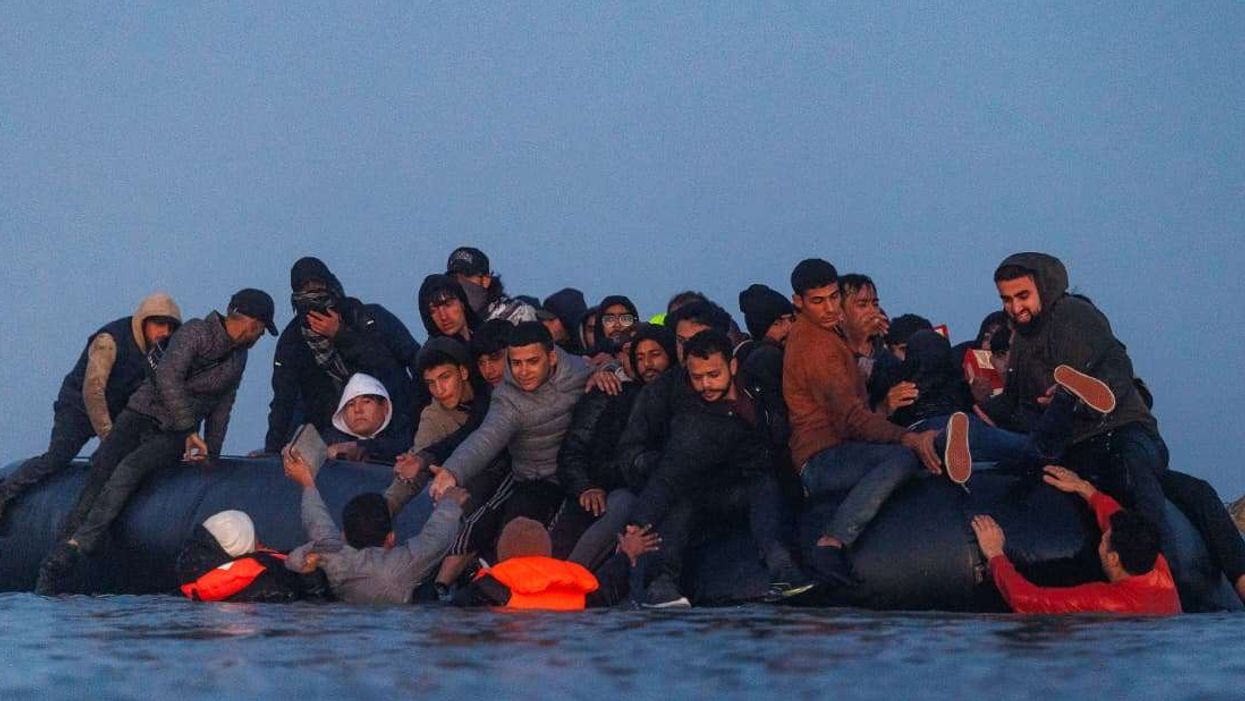THE HOME OFFICE on Monday set out major changes to the asylum system, including sharp reductions in protections for refugees and their children, as it seeks to curb irregular migration and growing far-right anger.
Under the proposals, the government will also warn of visa bans for countries that refuse to take back irregular immigrants.
The Labour government described the plans as the “most sweeping reforms to tackle illegal migration in modern times”.
Refugee protections
Home secretary Shabana Mahmood told lawmakers the reforms, based on Denmark’s asylum model, were aimed at discouraging people from crossing the Channel from France on small boats.
Calling the current system “out of control and unfair”, she said it was an “uncomfortable truth” that the UK’s more generous asylum offer compared to other European countries was a pull factor.
“The pace and scale of change has destabilised communities. It is making our country a more divided place,” she said.
Under the reforms, refugee status will become temporary and reviewed every 30 months. Refugees will be required to return to their home countries once those are deemed safe.
They will also have to wait 20 years, rather than five, before applying for permanent residency.
“We are obliged to offer sanctuary to those who would be in danger if they returned to their country of origin. However, should the regime change in their home country, our approach should change too,” the government said in a statement.
“If someone has fled the rule of one regime, but that regime has since been replaced, it must be possible to return them to that country.”
Some charities and Labour lawmakers criticised the plan, saying it could uproot refugees who settle in Britain.
The government said children as well as adults could be removed under the new measures and that it will launch a consultation on the issue.
Asylum seeker support
The government said it will end a legal duty to support asylum seekers and refugees who face destitution if they can support themselves or if they break the law.
More than 39,000 people, many fleeing conflict, have arrived on small boats this year — more than the whole of 2024 but below the 2022 record under the Conservatives.
As of March 2025, more than 106,000 asylum seekers were receiving government support.
Mahmood denied media reports claiming asylum seekers could have their jewellery seized to fund their stays, but said those with assets would have to contribute.
“To maintain the generosity that allows us to provide sanctuary, we must restore order and control” to the system, she said.
The government also said it will introduce legislation to make it harder for irregular migrants and foreign criminals to use the European Convention on Human Rights (ECHR) to block deportation.
Visa bans
The home ministry warned it could stop issuing visas to nationals from Angola, Namibia and the Democratic Republic of Congo unless they accepted the return of “their criminals and illegal immigrants”.
Other countries could be targeted, including potential limits on visas for people from states with high asylum claim rates who travel to the UK legally.
Britain received about 111,000 asylum applications in the year to June 2025, according to official data, a record high.
But initial positive decisions fell from 2023 to 2024.
Reactions
The tougher line has been viewed as an attempt to counter rising support for the Reform UK party.
Reform leader Nigel Farage welcomed the plans, saying Mahmood “sounds like a Reform supporter”.
Kemi Badenoch, leader of the Conservative Party, said the measures were “steps in the right direction” but did not go far enough.
Enver Solomon, chief executive of the Refugee Council, called on the government to rethink the plans, saying they “will not deter” crossings and that refugees who work hard should be able to build “secure, settled lives”.
(With inputs from agencies)





